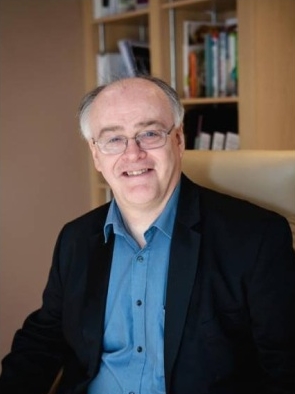"Be Thou my Wisdom and Thou my true Word"
I am sure we all have hymns that mean a lot to us, and to choose a personal favourite can be a really difficult thing to do, because so many are personal, that are linked to a special time, a particular person or experience.
For me, one that means a lot is ‘Be Thou My Vision’. I find that it is the perfect blend of a strong, almost mystical melody combined with poetic words with real depth and meaning, that have come down the ages, to sum up my feelings about God.
The origins of the hymn itself though are unclear but I think that just adds to its mystical appeal. It is believed that the words that we now know, were originally based on an Irish poem or ’lorica’ – a form of protection prayer that was written somewhere between the 6th and 11th century. Written in what was known as Old Irish, the person who most scholars think wrote the original text was St Dallan (meaning ‘little blind one’).
St Dallan was an early Irish Christian poet, who-the story goes- became blind after studying too intensively. After later writing in praise of Columbia who was largely responsible for spreading Christianity through Scotland, St Dallan miraculously regained his sight, and it is believed ‘Be Though My Vision’ was at some point written by him. The words we now sing were translated from old Irish to English first by Mary Byrne in 1901, and finally to the more familiar ones by Eleanor Hull in 1912.
The tune of the hymn is also a rather familiar one known as ‘slane’ and when you next sing ‘Lord of All Hopefulness’ (written by Jan Struther – also incidentally was also the author of ‘Mrs Miniver’ which later became the classic film starring Greer Garson) you will notice that the music is the same.
However good the music is, the lyrics and words are the soul of any hymn, and here ‘Be Though My Vision’ uses some really vivid imagery to illustrate what we are singing:
“Be Thou my Breastplate, my Sword for the fight;
Be Thou my whole Armour, be Thou my true Might;
Be Thou my soul’s Shelter, be Thou my strong Tow’r,
O raise Thou me heav’ward great Pow’r of my pow’r”
This echoes what Ephesians 6:16-17 has to say when St Paul talks about:
“With all of these, take the shield of faith, with which you will be able to quench all the flaming arrows of the evil one. Take the helmet of salvation, and the sword of the spirit, which is the word of God”
This is fairly violent imagery, but it was originally written at a time when there were regular battles and wars across clans and what this Hymn is saying is that only God is our Protector.
When we get to verse 3, we sing about what we do not need and what we have:
Riches I heed nor man’s empty praise;
Be Thou mine inheritance, now and always;
Be Thou and Thou only the first in my heart,
O high king of heaven, my Treasure Thou art.
This takes us back to Matthew 6:20:
“Lay not up for yourselves treasures upon earth, where moth and rust doth corrupt, and where thieves break through and steal;
But lay up for yourselves treasures in heaven, where neither moth nor rust do corrupt, and where thieves do not break through nor steal”
In short, we have all we need in Christ.
I think you can tell that I really like ‘Be Though My Vision’ and in my book there is only one version of it – which is the 1991 version laid down by the suitably Northern Irish soul/R&B man Van ‘The Man’ Morrison on the suitably apt album 'Hymns to the Silence'- you can listen below.
https://www.youtube.com/watch?v=9h-bbvmu0YY
Tags: Christian, Van Morrison, Be Thou my Wisdom and Thou my true word, Hymn, Irish Verse, Ireland, Eleanor Hull, Mary Bryne, Greer Garson, Mrs Miniver, Jan Sturther


